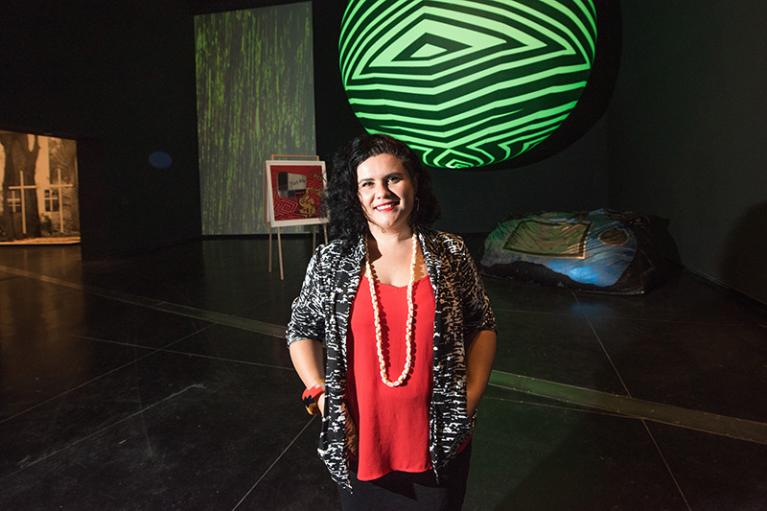Moondani Balluk engages in and with community in a multitude of ways, including:
- partnerships with local community groups
- community education
- education and engagement initiatives within non-governmental organisations.
Moondani Balluk engages in and with community in a multitude of ways, including:

The University has a Community Engagement Strategy, working with Moondani Balluk to establish and maintain respectful relationships with the Aboriginal community in the west of Melbourne.
Moondani Balluk is in partnership with Aboriginal groups, local Aboriginal community members and community organisations. Our aim is to advance opportunities for local Aboriginal people. We work closely with:
In 2019, the Wunggurrwil Dhurrung Centre in Wyndham was opened to provide a place for the Aboriginal community to gather. The Centre includes an early years' space and the Koling wada-ngal (Walk together – Wadawurrung) space specifically for Aboriginal people.
Local cultural-strengthening programs are poised to deliver their programs so that Aboriginal people can grow, connect and share cultural practices with each other.
Over many years Moondani Balluk and the Wyndham City Council worked with the Wyndham Aboriginal Community Centre Committee (now named Koling wada-ngal) to plan the purpose built Centre in Wyndham. The Centre took out the highest honour in the Victorian Architecture Awards 2020 for best practice in environmentally sustainable architecture.
Other highlights include director of Moondani Balluk, Karen Jackson, being appointed to the Victorian Aboriginal Economic and Employment Council.
Another appointment in late-2019 saw Kim Kruger, Lecturer and Researcher at Moondani Balluk, of the Murroona/Djiru people, appointed to the Creative Victoria First Peoples Directions Circle in 2019 to advise on the development of the state of Victoria's creative industries strategy (2020-2024).
Moondani Balluk provides avenues and support for Aboriginal people, staff and students to come together to advocate and inform on a range of topics important to the Aboriginal community. This is in line with our research mandate to empower self-determining and decolonising practices from a community-controlled and based standpoint.
Public education activities include:

Paola Balla – Wemba-Wemba and Gunditjmara woman and PhD candidate who lectures with Moondani Balluk Indigenous Academic.
Paola co-hosted and curated film screenings and exhibitions such BlackScreen, Executed in Franklin Street and Sovereignty.
VU created the Aboriginal Resource Guide for use by service providers and agencies and Aboriginal people. This was done in conjunction with the Department of Health & Human Services and the Brimbank City Council.